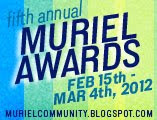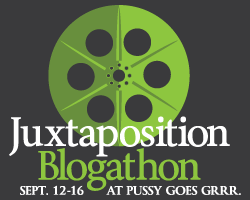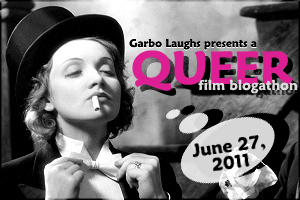This was a light week for me. Apart from re-watching Up (this time in 3-D, which added nothing to the movie but a needless distraction), I've mainly been watching stuff from television.
I went into Tobe Hooper's first entry for The Masters of Horror series with a healthy dose of skepticism. I'd heard bad things about it and Hooper is notoriously hit or miss. Would it be the same director who made The Toolbox Murders (which I loved) or Mortuary (which was awful)? It turns out that it was neither. It was the Hooper of the 1970s. Dance of the Dead was gritty, unpleasant, and shocking, a film that trades in humanity at its very worst, one that doesn't reassure the audience and one that damn sure doesn't cater to the expectations of horror fans. If I didn't know that this was based on a Richard Matheson story, I doubt I would have guessed it. It plays in the territory of the splatterpunks, and is more in the sensibility of Matheson's son, Richard Christian (who wrote the screenplay for this). It's all about violating taboos. It's about the corruption inherent in the traditional family, it's about the notion that there actually ARE things worse than death. Although this presents Robert Englund as a kind of ringmaster, and gives him a salacious patter as, perhaps, a sop to the unrelieved grimness of the rest of the story, what humor he provides is of a particularly hard boiled and nasty variety. Of the episodes by the major "masters" assembled by the show, this one is probably my favorite.
Back in the late 90s, just before the advent of DVD, Fox issued The X-Files on VHS. They didn't issue whole seasons. Rather, they issued half-season that they assured viewers were specifically selected by Chris Carter as the best of the show. I remember a lot of grumbling from fans--myself included--over this decision--but it turns out they knew what they were doing. I'm revisiting the first season right now, and almost invariably, the ones omitted in that first video offering weren't very good. And the ones that they DID offer, WERE very good. Some observations:
My favorite episodes from the first season are "Ice" and "Eve." "Ice" is a crackerjack homage to The Thing with some nasty little alien ice worms. Eve is driven by a memorable performance by Harriet Sansom Harris as multiple clones. Both episodes seem more cinematic than some of the lesser episodes surrounding them. They also explore their ideas more rigorously. Of the "mythology" episodes, I'm partial to "The Erlenmeyer Flask," which hints at the innovation the series would pursue later by providing a drastic pivot on which to redirect the character of Dana Scully. Unlike most characters in television series, Scully undergoes dramatic changes as the series progressed, and this episode provides the jumping off point for that.
The costumers started to subtly alter Gillian Anderson's wardrobe about mid-season towards a more stylish look.
The reversal of gender roles is also very interesting, with the male half of the team, Mulder, being entirely credulous of weird phenomena, and the female half, Scully, being the skeptic. Mulder is also palpably the more emotional of the two. This corresponds to interesting character developments later in the series, though those aren't even hinted at in the first season.
The dichotomy between the "good" episodes and the "bad" episodes is an interesting case study in the changing nature of television series. The bad episodes tended to resemble older television--in particular Carter's acknowledged role model, Kolchack: The Night Stalker--while the good episodes tend to point the way towards the more novelistic television series that would follow (Lost or The Sopranos, for instance). This second approach also shows the lingering influence of Twin Peaks, something exacerbated by the presence of Twin Peaks-alum David Duchovny. For the most part The X-Files feels like a transitional entity, one poised between eras.
Monday, July 06, 2009
Sucking at the Glass Teat
Posted by
Vulnavia Morbius
at
9:33 AM
![]()
Labels: Masters of Horror, X-Files
Subscribe to:
Post Comments (Atom)















No comments:
Post a Comment